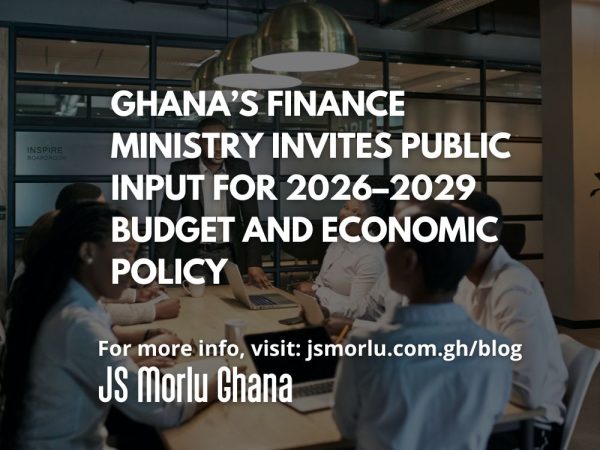The Ministry of Finance (MoF) in Ghana is opening its doors virtually and physically to citizens and organizations who want a say in shaping the country’s future economic direction. From business associations and financial institutions to civil society groups and individual citizens, all voices are welcome in contributing to Ghana’s 2026–2029 Budget Statement and Economic Policy.
Why Public Input Matters
Ghana’s budget isn’t just numbers in a ledger it’s the roadmap for national priorities over the next four years. Public input allows policymakers to understand the real-world challenges and opportunities faced by citizens and industries, ensuring that the policies are not only inclusive but also grounded in practical realities.
According to the Ministry’s public notice, feedback from previous years has directly influenced budget allocations and policy directions. This process is part of a broader push to strengthen participatory governance and ensure that economic decisions reflect the needs of the Ghanaian people.
Who Can Contribute?
The MoF has cast a wide net, inviting contributions from:
- Business and industry associations
- Professional bodies
- Financial institutions
- Civil society and advocacy groups
- Faith-based organizations
- The general public
By welcoming such diverse stakeholders, the Ministry aims to capture perspectives from across Ghana’s economic and social landscape.
The Timeline
The government is working toward a November 15, 2025 deadline to present the 2026 budget to Parliament. Public submissions will play a significant role in informing the draft, making early participation essential.
How This Fits into Ghana’s Budget Process
This call for contributions is part of Ghana’s ongoing commitment to inclusive economic planning. In recent years, the government has emphasized transparency and responsiveness in fiscal policy. The current initiative builds on that foundation, ensuring citizens are not just passive recipients of policy but active contributors to its design.
The Ministry notes:
“This call is in line with the government’s responsiveness to the needs of the Ghanaian citizenry to deepen participation in the budget process as well as implement inclusive policies.”
How to Get Involved
While the Ministry will provide official channels for submission (often via online portals, email, or direct correspondence), those interested should prepare clear, evidence-based proposals. Submissions can cover:
- Sector-specific policy recommendations
- Suggestions for infrastructure investment
- Ideas for improving fiscal efficiency
- Measures to address social and economic inequality
- Proposals for sustainable economic growth
Why This Matters for the Future
The 2026–2029 budget will shape Ghana’s medium-term economic outlook, influencing everything from job creation and education funding to infrastructure projects and social welfare programs. This is an opportunity for individuals and organizations to influence the allocation of resources and the policy priorities that will impact millions of lives.
